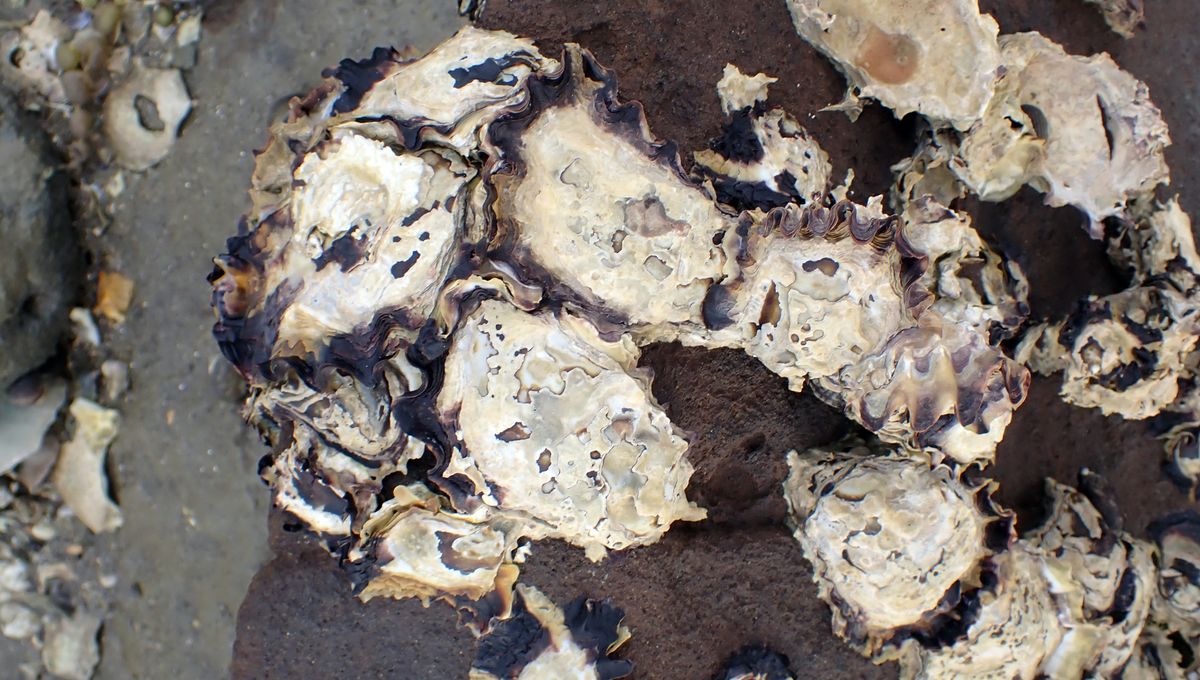
A new ally is emerging in the increasingly urgent battle against superbugs – and you might have encountered it before at the dinner table. New research reveals that proteins in Sydney rock oyster hemolymph (their equivalent of blood) can kill infectious bacteria and also boost the effectiveness of antibiotics.
ADVERTISEMENT GO AD FREE
These mollusks encounter a bunch of different germs in the water that they filter-feed from, however: “Like all invertebrates, they don’t have a really complex immune systems, so they can’t produce antibodies – they don’t have white blood cells,” Professor Kirsten Benkendorff of Southern Cross University, who supervised the study, told ABC News. To patch this hole in their defenses, antimicrobial proteins and peptides in their hemolymph step up to the plate.
These antimicrobial proteins and peptides in semi-purified hemolymph protein extract (HPE) are the focus of the new research. “To improve how well currently available drugs work, they are increasingly combined with antimicrobial peptides and proteins,” Benkendorff and lead researcher Kate Summer wrote in a piece for The Conversation, explaining that they can disrupt bacterial cell membranes and thus help antibiotics reach their intended target.
However, don’t go running to the seafood aisle before the pharmacist if you’re feeling under the weather – as Benkendorff cautioned to the Guardian, “I definitely would not suggest that people ate oysters instead of taking antibiotics if they have got a serious infection.” These results are from in vitro experiments (meaning they were not tested in the bodies of living organisms), so more research is needed to find out the safety and efficacy of HPE in practice.
Building on their previous research on Sydney rock oyster HPE, the team looked at how it acted on a range of bacteria (focusing on those causing respiratory infections) both by itself and alongside various antibiotics.
When tested by itself, HPE could kill Streptococcus species, but the other species weren’t affected. However, HPE proved to be a good team player, with the study authors writing that “HPE at sub-MBC [minimum bactericidal concentrations] concentrations (1.0–12.0 μg/mL) improved the efficacy of ampicillin, ciprofloxacin, gentamicin and trimethoprim between 2 and 32-fold” against most other bacteria species tested (non-typeable Haemophilus influenza proving a difficult foe). It was also shown to be non-toxic to human lung cells up to 205 μg/mL.
HPE can also target another factor that can hinder efforts to treat infection: biofilms. These form when bacteria decide to get sticky, adhering to surfaces and secreting substances to protect themselves, and the study authors note that bacteria in biofilms can persevere against much higher doses of antibiotics. “The oyster hemolymph proteins were found to prevent biofilm formation and disrupt biofilms, so the bacteria remain available to antibiotic exposure at lower doses,” Benkendorff said in a statement.
ADVERTISEMENT GO AD FREE
The researchers suspect that cystatin B-like protein, carbonic anhydrase, tropomyosin, and peptidyl-prolyl cis-trans isomerase could potentially be behind these results.
They write that “All FDA-approved AMPPs (Colistin [Polymyxin E], Polymyxin B, Nisin, Melittin, and Daptomycin) are active at similar concentrations to HPE against Gram-positive species.”
They also suggest that the “natural degradation of [antimicrobial proteins and peptides] also makes their environmental fate less problematic than many conventional antibiotics.”
ADVERTISEMENT GO AD FREE
Plus, although “Extensive harvest of natural products from wild populations of marine organisms is not often economical or ecologically possible,” Sydney rock oysters are already produced using commercial aquaculture. This, they say, could lead to “increasing the value of ‘seconds’ (i.e., smaller, misshapen [Sydney rock oysters]), allowing harvest during periods where water quality does not comply with food safety regulations, but may be acceptable for processing HPE.”
The study is published in the journal PLOS ONE.
Source Link: Oyster “Blood” Could Help Kill Bacteria And Boost Antibiotics' Effectiveness